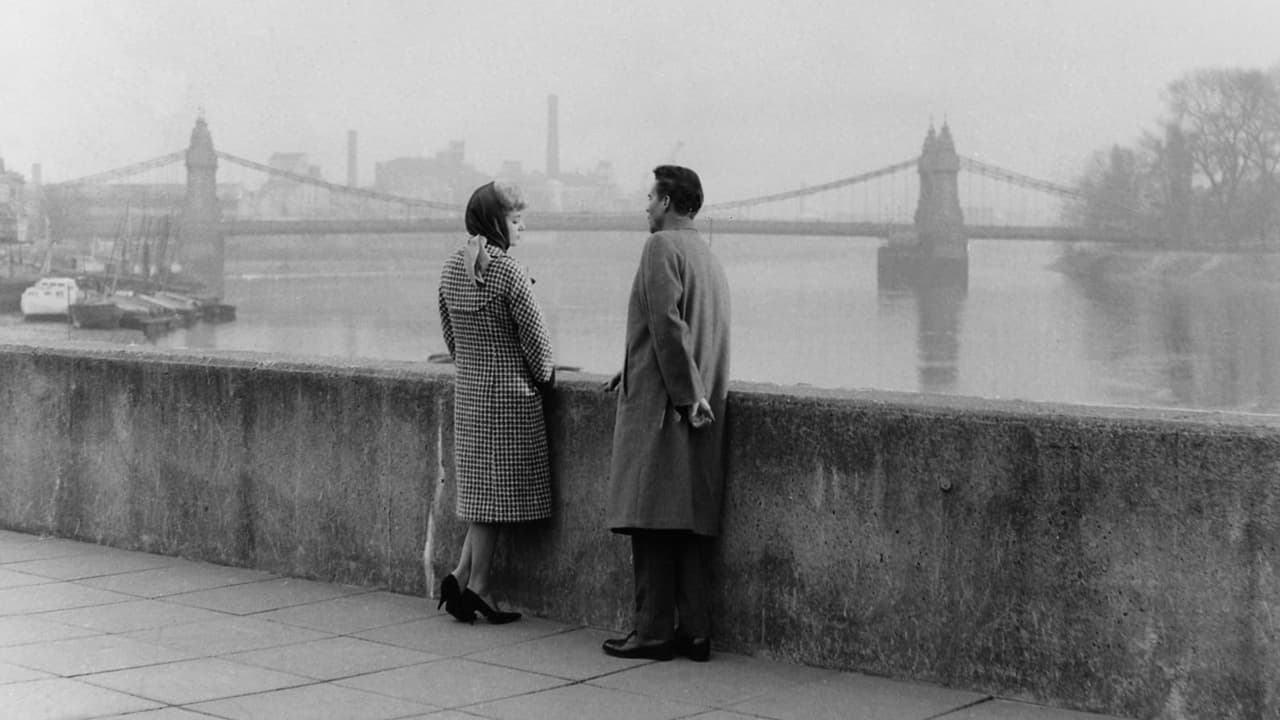

What a waste of my time!!!
... View MoreThrough painfully honest and emotional moments, the movie becomes irresistibly relatable
... View MoreThe acting in this movie is really good.
... View MoreOne of the film's great tricks is that, for a time, you think it will go down a rabbit hole of unrealistic glorification.
... View MoreOf course this is bold, brave, daring and ahead of its time, but it is also a thrilling and emotional ride. I had rather expected this to be earnest and prejudiced, presenting the case against the then law against homosexuality, as if to a child. But, this opens at a gallop and barely pauses as we struggle to find out what is causing the young lad to run for his life seeking help from old colleagues. Along the way we catch fantastic glimpses of late 50s/early 60s London, particularly St Martins Lane, Cambridge Circus and Chiswick Mall. There are several scenes shot inside The Salisbury pub which apparently was a gay pub at the time, although not openly presumably. Dirk Bogarde is great in what can't have been an easy role, particularly at that time. He plays well off Sylvia Syms, who also does well and even Dennis Price puts his head on the block with a similarly brave performance. It would be nice to think todays film makers might be able to make a film with something to say that is also a thrill to watch. Fat chance.
... View MoreFortunately, it's unusual for any law to be responsible for creating more crime than it actually deters, but the legislation that criminalised homosexual acts between men came to be seen as the "blackmailer's charter" and caused an incredible amount of human misery before decriminalisation in 1967 eventually removed the intimidation and fear that so many British gay men had previously endured. Basil Dearden's remarkable movie "Victim", provides a priceless snapshot of how the lives of many gay men living in London were affected by this now discredited piece of legislation and in so doing, points to the need for more tolerance to be used in order to achieve a greater measure of justice for everyone.Although by 1961, public and police attitudes to homosexuality in Britain were becoming more relaxed, taking this kind of stand and addressing the issue so overtly in a mainstream movie was still extremely controversial and risky. "Victim" is widely credited as being the first movie in which the word "homosexual" was used and also includes words such as "invert" and "queer" which are no longer in common use.Melville Farr (Dirk Bogarde) is a highly successful London barrister who repeatedly refuses to take telephone calls from a young man called Boy Barrett (Peter McEnery). Unknown to Farr, Barrett is desperately attempting to leave the country because he's being pursued by the police. Being broke and having failed in his attempts to get help from his friends, he's soon arrested and charged for stealing a large amount of money from his employers. When police checks establish that he has no expensive possessions and lives very modestly, Detective Inspector Harris (John Barrie) quickly recognises that this young man is obviously being blackmailed.Barrett refuses to say what he did with the stolen money or to provide the police with any information about the scrapbook clippings about Farr that was found in his possession at the time of his arrest. Harris then interviews Farr but he's unable to offer any meaningful assistance. The barrister then looks visibly shaken when Harris informs him that Barrett has committed suicide by hanging himself in his cell.Farr is happily married but has also had a couple of unconsummated gay relationships. One was with a fellow student at university and the second was with Barrett. His wife Laura (Sylvia Syms) knew all about his homosexuality before she married him but only learns about Barrett after his death. Feeling terribly guilty and upset about what happened to his friend, Farr bravely decides to track down the blackmailers even though doing so means risking his reputation, his marriage and his career. His investigation soon reveals that the blackmailers' victims include a wide range of men from different social classes and occupational groups.Dirk Bogarde was an enormously popular film star who was ambitious to advance from his "matinee idol" status to be regarded as a serious actor. He certainly achieved this by taking the role of Farr and his performance in this movie led to him being offered the more challenging types of roles that he became known for in the second stage of his career. His courage in risking his entire career in order to pursue his professional ambition was impressive but due to the prevailing attitudes, it still wasn't really possible for him to declare his own sexual orientation at that time.Melville Farr is one of the most honest characters imaginable as he's remarkably straightforward with everyone he encounters. Bogarde is perfect in his role and Sylvia Syms brings great dignity and intelligence to her portrayal of his wife who stays incredibly strong and loyal despite the emotional pain that she suffers."Victim" is clearly a movie with a point to make and achieves what it set out to do very effectively. Commendably, however, nothing is sacrificed in terms of entertainment in order to get the message across as it's also an engrossing thriller which eventually leads to a surprise revelation near the end.
... View MoreSince this film has so many reviews, I shall simply focus entirely on the impact that this film had on my inner emotions vis a vis the main character - Dirk Brogade who plays the barrister/solicitor.Mr. Brogade is an another fine actor from the British screen. He is so compelling and unforgettable in this role and thankfully he does it justice because Mr. Brogade brings to life or parallels the perils of homosexuality in a time when gay people were persecuted criminally. The Victim is an apt title but you really ponder how many victims in this cruel and well acted drama?I urge all to watch this beautifully written and directed and extremely well acted film but most of all, follow-up the actual plot with real life struggles that gay people assumed at the time of the criminalization of homosexuality.
... View MoreLooking at this film from today's perspective it looks very tame, the story is a group of gay men from different social economic groups being blackmailed, but this film was made in 1961 6 years before the 1967 Sexual Offences Act which decriminalised sex acts between men over the age of 21 in private, the film was made during the period which became known as the British new wave when British films wanted to become more realistic and challenge the accepted view of society and the establishment but this was still a brave move at the time, the film treats the men sympathetically (who at the time would've been regarded as perverts and criminals) and argues (as much as it dares) for the law to be changed, Dirk Bogarde plays a successful barrister who decides to take on the blackmailers and let the chips fall where they may, knowing that that decision will destroy pretty much every aspect of his life, the film is well acted and very well made, i think because of its time and subject matter the film will always be very interesting as a period piece more so as time goes by, to think that less than 50 years ago there were laws like this and people were persecuted and prosecuted for their preferences is a disgrace and i think that's what most of todays audiences will think.
... View More